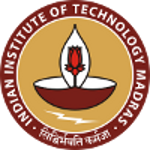Endothelial progenitor cells group
Ability of the vasculature to form a collateral network of blood vessels is a by-pass mechanism to over-come tissue ischemia upon occlusion of blood vessel. However, in diabetics exhibiting macro-angiopathy (blockade of bigger blood vessels) this adaptive ability of the system is greatly compromised. Intriguingly, the mechanism by which diabetes limits macro-vessel growth to date remains elusive. Endothelial progenitor cells (EPCs) are circulating or tissue based adult progenitor cells capable of inducing neo-vascularization by differentiating into endothelial cells. They tend to migrate towards the target tissue either to form a new vessel or to repair the damaged endothelium by forming cellular patches at the site of denuding injury. They express signature surface markers of immature haematopoietic stem cells i.e. CD34 and CD133 and their culture characteristics include adherence to fibronectin, uptake of acetylated LDL and binding to Ulex-selectin.
Although suggestive, it is not clear as to how diabetic pathology causes dysfunction of circulating EPCs to compromise neo-vascularization. Additionally, the status of EPCs in Asian Indians is presently unknown. Hence, the objective of this project is to determine circulating levels of EPCs in healthy versus diabetic Asian Indian subjects. The other objective of the project is to determine molecular and cellular differences in cultured EPCs obtained from these study subjects. The current team members working on this project are:
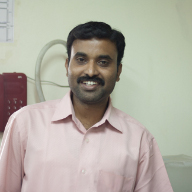
Abel Arul Nathan
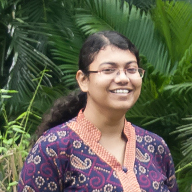
Soumi Bairagi
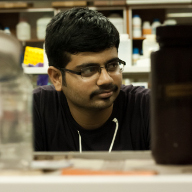
Abhiram Charan Tej
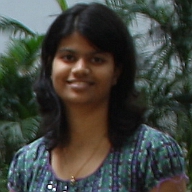
Maneka
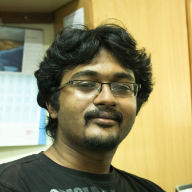
Shreyas Rangan


He obtained his bachelorís degree (B. Pharm.) in Pharmaceutical Sciences from Dr. MGR Medical University and masterís degree (M.Sc) in Molecular Biology from University of Madras. He joined IIT Madras in Noví 2007 as a Project Associate for a DBT sponsored project.
His research focus is on Isolation and characterization of Circulating Progenitor Cells and a major part of his work involves Functional characterization of CD133+ and CD34+ cells from peripheral blood samples collected from diabetic subjects.


Soumi Bairagi did her B.Sc in Biotechnology from Bangalore University followed by M.Sc. in Biomedical Science from Dr.B.R.Ambedkar Centre for Biomedical Research, Delhi University. She joined Department of Biotechnology, IIT Madras in December 2007 after clearing CSIR-NET examination in the same year.
Her expertise lies in the fields of isolating and culturing blood derived circulating progenitor cells from peripheral blood. These progenitor cells take active part in the maintenance of the endothelium and vascular homeostasis. These cells are often considered as indicators vascular diseases and their numbers are shown to be decreased in pathological conditions exhibiting endothelial dysfunction such as diabetes, coronary artery diseases, etc.
Our initial studies aimed at evaluating the circulating numbers and endothelial differentiation potential of these progenitor cells in amenorrheic females who are hyperinsulinemic and exhibit impaired endometrial angiogenesis. Interestingly, not only the progenitor cell number and function was reduced in amenorrheic females, they also showed increase in circulating numbers post glucose load in control females which was absent in amenorrheic females.
Currently, we are interested to look at the gender bias observed in cardiovascular diseases with males being predisposed to cardiovascular events such as myocardial infarction. This has been attributed to the atheroprotective effects of female sex hormones on the vasculature. Whether the male and the female sex hormones initiate any differential angiogenic responses on the progenitor cells is still a question. Hence, her interest is to look at the effects of various sex hormones on the angiogenic potential of cultured progenitor cells.


Abhi did his masters in Biotechnology from Pondicherry Central University. His work experience includes a 12 month dissertation project on characterization of Quorum sensing molecule from clinical isolate of Acinetobacter baumannii and a two month summer intern on the site directed mutational analysis of a membrane pump protein responsible for multi-drug resistance in Candida albicans.
His current work includes the isolation and ex-vivo rejuvenation of Endothelial Progenitor cells from Diabetic subjects with a special focus on the effects of shear stress on the cultured EPCs and its role in their rejuvenation.


Maneka, is currently a final year undergraduate in the Depratment of Biotechnology at Indian Institute of Technology Madras, pursuing her B.Tech . Her research experiences include a two months summer internship on constructing a comprehensive EGF stimulated ErbB signaling pathway, as an Indian Academy of Sciences scholar at Centre for Cellular and Molceular Biology. She also interned at Vascular Research Centre in the Department of Cardiovascular Physiology, Goethe University for a period of three months. The project focused on the effects of 1, 25 dihydroxyVitamin D3 on endothelial injury.
She joined the Vascular Biology laboratory in September 2011 to pursue wet lab research for her B.Tech thesis. The thesis work includes isolation of Endothelial Progenitor cells from Human subjects with a special focus on their impaired function under pathophysiological settings of Diabetes; and the effects of Hyperglycemia induced Autophagy in them. The project also includes Adenoviral-mediated overexpression of eNOS in cultured EPCs.






